Hey Seryen’kiy,
I made this page to show you my appreciation for having gotten to know you and having you become a part of my life which I enjoy and appreciate a lot.
I think you are a kind, emphatic, sensitive, smart and interesting person. I feel a very unique and special connection to you and am looking forward to explore that further with you in our future.
I wanted to share some information here with you that might be of help in your journey to self discovery. To learn about yourself, others, the world and all the mysteries that lie beyond.
 What I am sharing is mostly based on my own journey through my own issues I have been working through so far in this lifetime. I understand that each of our situations is unique but with the limited knowledge and experience I do have I think it might be of service to you.
What I am sharing is mostly based on my own journey through my own issues I have been working through so far in this lifetime. I understand that each of our situations is unique but with the limited knowledge and experience I do have I think it might be of service to you.
I am also always open and curious for your input. I am curious about your life and love to hear more of your story whenever you feel ready to share it with me. The better I know and understand your story the better I can assist. But I also understand if you don’t want to share certain parts and fully respect that.
With the limited knowledge I do have about your story, and with my desire to be of assistance here is what I would like to share at this moment in time with you.
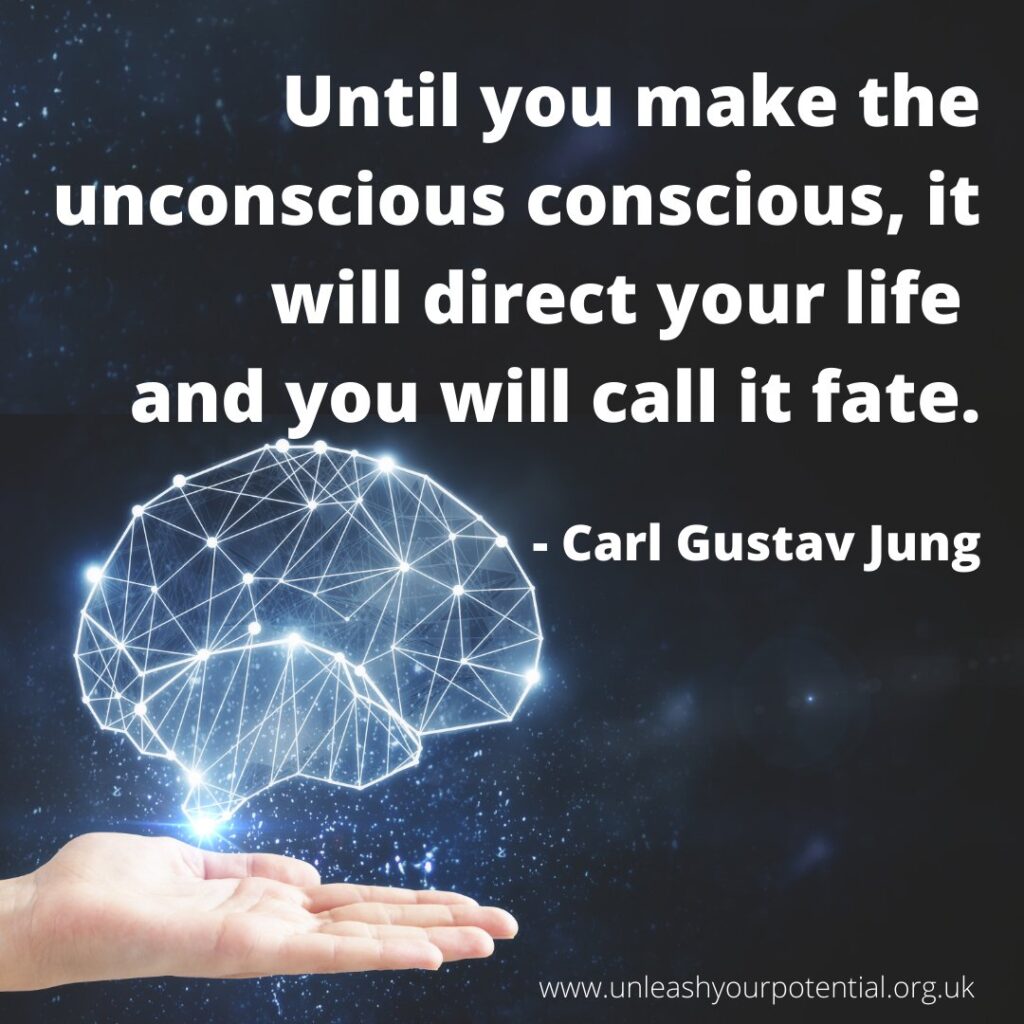
We all carry parts of ourselves we’d rather ignore—the urges, fears, and regrets tucked in corners of our minds. When we brave that hidden terrain, we reclaim energy and wholeness we never knew was missing. ~ Jung
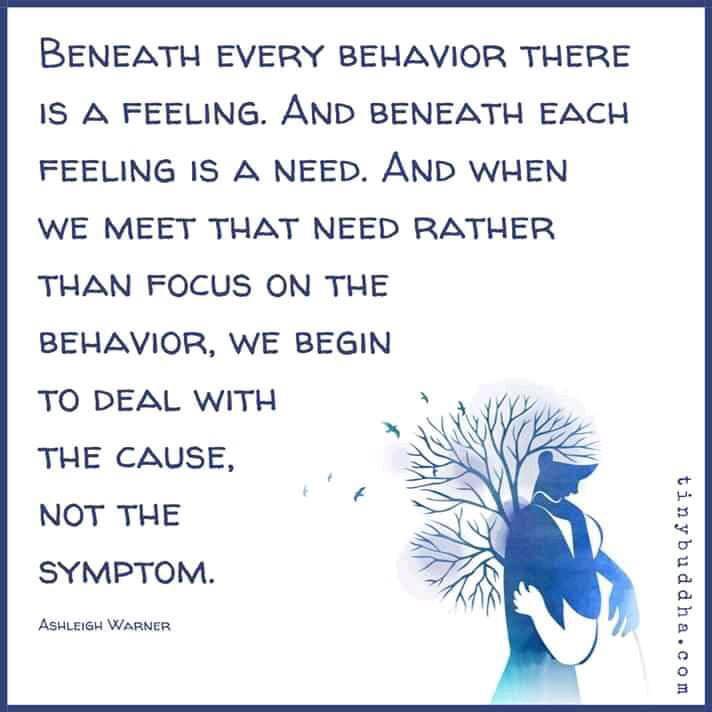
Our feelings and needs matter. It is important that we listen to them and that we surround ourselves with people that respect them and take them into consideration also.
This is the most informative and to the point video on the Anxious Preoccupied Attachment Style I have found so far. The programming we receive in our youth that helps us survive in difficult/suboptimal circumstances can later cause us to repeat these suboptimal patterns due to something called our unconscious comfort zone and can create a vulnerability in us to become codependent.
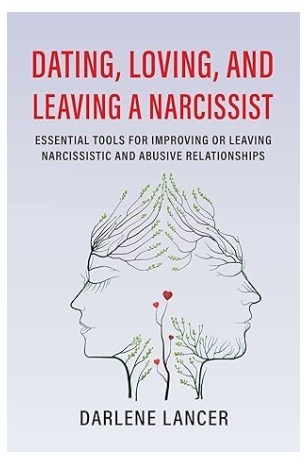
The core problem is that narcissists prioritize power and sacrifice the relationship to get it, while their partners prioritize the relationship and sacrifice themselves to keep it.
It also increases our risk to end up in trauma bonded relationships later in our romantic lives. People are not to blame for this, this is not anyone’s fault, and people can reprogram it, as many have done.
By returning to our childhood with compassion and curiosity we can retrain our programming with which we navigate relationships later in life. We can improve our relation to our inner child and so with ourselves. From this healthier relationship with ourselves we can then attract healthier relations like better friendships and romantic partners.
One can reprogram their childhood relational patterning, many have gone before and shared their experiences and made it available online to assist others in their journey. This lady has helped me greatly in retraining my own fearful avoidant attachment style, I still can improve but it has become a lot better than where I was 4 years ago. Maybe she can assist you in your process also.
Heal Your Anxious Attachment Style FAST
00:00:26 – What Is the Anxious Preoccupied Attachment Style?
00:04:05 – Element #1: Get a Sense of Security from the Inside Out
Exercise – Here is a great list with self reflection questions to promote individuation.
Try to answer one or two questions each time to reflect on who you are and what is important to you in different important areas of your life.
00:06:18 – Element #2: Learn Your Needs
Exercise – Do a regular Needs Inventory – have a look at Maslow Pyramid of Needs & Compassionate Communication Needs List & Universal Human Needs Framework to see what human needs there are. Then make a list of 5 needs that you feel are fulfilled and you can be grateful for. And then identify 3 needs that are unmet and see how you can meet them better in your life. How are emotions and feelings connected to met and unmet needs?
00:07:53 – Element #3: Nervous System Regulation
Exercise – Here is a list of various methods for Nervous System Regulation. Try out a couple pick one or two that work well and make it a habit.
00:09:02 – Element #4: Learn to Question Your Stories
Exercise – Learn Mental and Emotional mastery. Investigate, turn around and transform stressful thoughts and beliefs. Learn to feel all emotions and release them.
-) Mental Mastery – Part 1: How our thoughts, beliefs and belief systems influence our experience of reality
-) Mental Mastery – Part 2: Learn to investigate, turn around and transform bad feeling thoughts & beliefs
-) Emotional Mastery – Feel the full Emotional Spectrum and learn how to process difficult emotions like shame, guilt, apathy, fear, sadness, anger, jealousy etc.
00:11:48 – Element #5: Learn Healthy Boundaries
Exercise – Here is a good explanation plus practical and simple exercises to learn to set healthy boundaries. By learning to set healthy boundaries one can stop people pleasing and self abandonment.
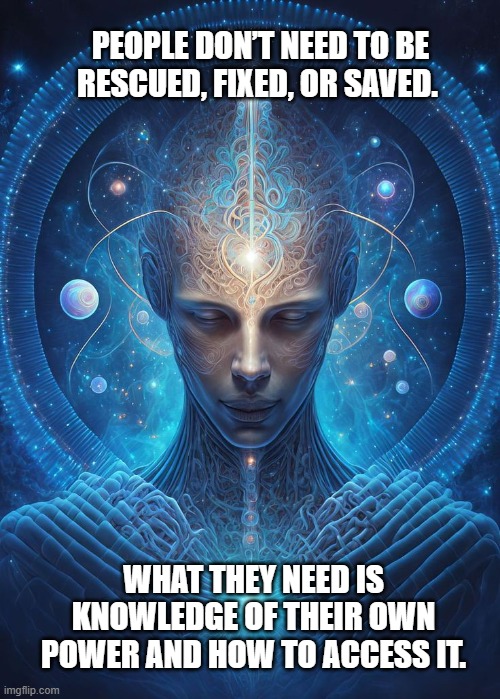
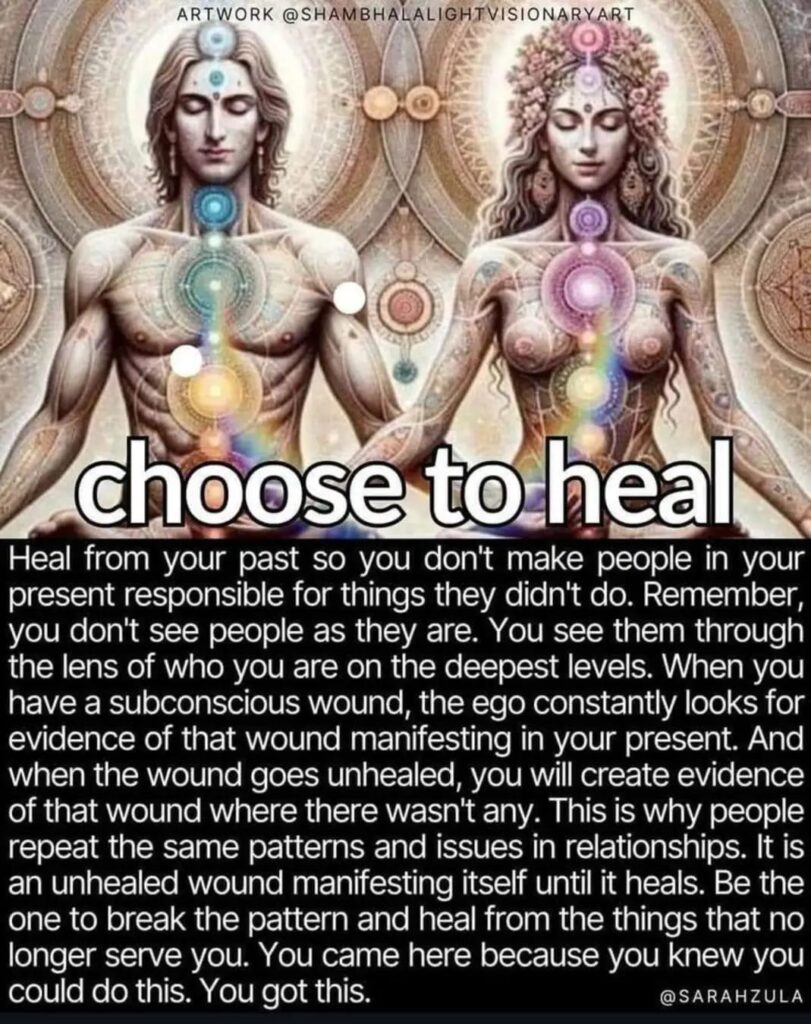 In addition a practical meditation. I actually really liked this guided meditation maybe it can be one entry point for you as well. Pro-tip, do 0.5-1 gram of magic mushrooms in nature and listen to this a couple of times. It worked like a charm for me at least. 😀
In addition a practical meditation. I actually really liked this guided meditation maybe it can be one entry point for you as well. Pro-tip, do 0.5-1 gram of magic mushrooms in nature and listen to this a couple of times. It worked like a charm for me at least. 😀
Inner Child Meditation for Codependency and Negative Programming
 Once more, thank you for enriching my life with your presence.
Once more, thank you for enriching my life with your presence.And I am looking forward to see how this co-creation between us will unfold further.

Understanding Trauma – Part 10 – Healing
An overview of healing from trauma and how leaving trauma unhealed takes energy and means being at war with oneself.
https://www.youtube.com/watch?v=a6xZsyEUICg
Understanding Trauma – Part 4 – The Brain
Research is making clear that Trauma (both Big T and Little T) has a profound effect on the brain. All of it negative. But the brain can heal thanks to neural plasticity. Tim explores the latest research to help us understand this important topic.
https://www.youtube.com/live/QNKnQqs3Mo4?si=xHnSRfBiDQmAfnT4
Understanding Trauma – Part 11 – Polyvagal Theory
Polyvagal Theory has become an important understanding of how our Nervous System works and how trauma affects it. It also provides an understanding of how to heal trauma. Tim talks about this topic and how to heal and retrain the Vagal System that has been damaged by Complex Trauma.
https://www.youtube.com/live/9X6y8rCDTxc?si=FkBM8BOdFsT2fyIX
—
Back To Basics – Part 5/7 – Healing – Part 1/3
Limbic Brain Therapy – 8 introductory tools to healing from Complex Trauma.
https://www.youtube.com/live/xRQD9nToKjg?si=_EjQfm8DbUsv2uJ2
Back To Basics – Part 6/7 – Healing – Part 2/3
Mindfulness is an important skill to learn if one is to heal from Trauma. Tim will explain mindfulness and give tools that will help people improve in this skill.
https://www.youtube.com/live/nvfla9j32so?si=dTVXjMWbNHcGqnJ9
Back To Basics – Part 7/7- Healing – Part 3/3
Modern therapies for helping people with Trauma as well as other skills necessary and a realistic big picture of what the journey of healing from Complex Trauma is like.
https://www.youtube.com/watch?v=0ohZZIuOqdE&list=PLpvbEN3KkqoLdvaCn9E73SsVnDJ4WQlBk
More videos on healing on Tim Fletcher his YouTube channel.
Re-Parenting – Part 95 – The Quest For Happiness – Part 1
Every parent wants their child to be happy, but many don’t have an accurate recipe for happiness.
https://www.youtube.com/live/mqHDiwPWR1w?si=BNM5Ks3YO6ZOLKyD
Re-Parenting – Part 96 – The Quest For Happiness – Part 2
Tim looks at the research of Positive Psychology and the formula for happiness.
https://www.youtube.com/live/Iw_4UijZGNQ?si=QyEXgbnRYOBbMWOO
Re-Parenting – Part 98 – Post-Traumatic Growth (PTG)
Is it possible to not just heal from trauma but to also be transformed in positive ways by the trauma?
https://www.youtube.com/live/wEv-o4npU9s?si=vgJ6mNe2J3hXZsX1
Re-Parenting – Part 99 – Post-Traumatic Growth – Part 2
Tim looks at the factors necessary to ensure and maintain Post Traumatic Growth.
https://www.youtube.com/live/Vhk-rskDycY?si=emcnKvo1nrTuX8K9
Dealing with Addiction featuring Tim Fletcher.
Tim Fletcher is the Founder and President of RE/ACT (Recovery Education for Addictions and Complex Trauma). Originally starting his career as an engineer, Tim later became a pastor, but after experiencing depression and burnout, he transitioned into counseling at addiction treatment centers.
Through his work, Tim recognized a gap in the tools available to truly help individuals struggling with addiction. He devoted himself to finding and developing practical resources that people could not only understand but also apply in a safe, supportive environment.
https://youtu.be/1bynhSnQGj0?si=qNMvAtjQ32lyG8Mb
—
Short interview of about 20 minutes where Tim talks about his program for people to deal with addictions. He says they have a success rate of over 50% where most normal addiction programs have around 10% success rate. It is 1.950,00 Canadian Dollars for the ‘simple’ version and 3.560,00 Canadian Dollars for the ‘more advanced’ version.
You can see the course curriculum here: https://www.timfletcher.ca/lift-online-learning/
They go into a lot of detail about all the things they will be teaching, from dealing with difficult emotions, improving relationships, etc.
You can also do a free intake call of 45 minutes with them and see if it would be a good fit.
Some testimonials can be found here: https://www.timfletcher.ca/testimonials
The most important demon in the Buddhistic sense that seems most difficult to face and acknowledge appears to be Shame.
—
Shame and Complex Trauma – 6 Part Series
https://youtube.com/playlist?list=PLpvbEN3KkqoJItM9a3-8kqr9zC73fwJPP&si=YWB4DpPwW7S-GhXJ
Part 1/6 – What is Shame?
https://youtu.be/IOQTfqUdypc?si=8BVSPWAf1iEJnHJB
Part 2/6 – Unhealthy Solutions
https://www.youtube.com/live/eMoyj12nsaA?si=f9NOd-EPyueasisN
Part 3/6 – How it Affects Relationships
https://www.youtube.com/live/uJm_uI9vwfo?si=uURuBAsXzVNVe3Kh
Part 4/6 – Shame Test
https://www.youtube.com/live/Or2Kgpht10Q?si=ZdErf_1Nr6IztWms
Part 5/6 – How Shame Affect one’s Thinking, Emotions and Actions
https://youtu.be/SreVVinAYCo?si=Wef5IjwgWCmG8LmN
Part 6/6 – Healing
https://www.youtube.com/live/7OZaCjbDqrA?si=DulGyYPoor_iv10S
Shame As A Prison
A sad reality about Complex Trauma is not just that it results in shame; it’s that the shame becomes a prison, keeping us from changing, growing, becoming healthy. Tim explores the many sophisticated layers of security in this prison that all work to prevent us from escaping – from growing.
https://www.youtube.com/live/eDfBdA5lgRI?si=XOC_uKSrI2VgS0wC
“Am I Ever Going to Heal from My Shame?” | Healing Shame as Part of Complex Trauma Recovery
Tim answers the question, “Am I ever going to heal from my shame?”. Shame is one of the most devastating characteristics of Complex Trauma, and it can take a long time to unlearn these deeply ingrained patterns of self-judgment, worthlessness, and toxic self-perception.
https://youtu.be/-mCnTEQI1PY?si=yYFxwmYqkgGj6-sC
9 Ways Shame Changes Your Relationships With Others | The Characteristics of Complex Trauma – Part 5
Tim looks at common trauma patterns like using manipulation, struggling with intimacy, dealing with jealousy, and more – all connected to that core shame we develop from complex trauma.
https://www.youtube.com/live/dW9-9uq2-9I?si=Xd6s4sR3m5YWN6TF
The Connection Between Complex Trauma, Codependency, & Narcissism
Tim offers up a masterclass on complex trauma and its connection to codependency. He breaks down how children who experience complex trauma in childhood will oftentimes have one parent or caregiver who is narcissistic or displays narcissistic traits and will in turn form a codependent relationship with that parent or caregiver.
Tim goes on to explain the cycles of codependent relationships, how addiction plays a role, what you can do if you find yourself in this type of relationship, and so much more.
https://youtu.be/wyeRSEYD1po?si=sHc03E_xmtwna5-G
Understanding Trauma – Part 32 – Trauma Bonding
Important in understanding Complex Trauma is understanding Trauma Bonding, something that also happens in relationships of abuse and neglect. Tim explains what Trauma Bonding is and why the bonds are so hard, but so important, to break.
https://www.youtube.com/watch?v=xIf4uJ94r3o
Shame Distorts Good Qualities
Complex Trauma requires a child to make adaptations in order to survive and to try to get their needs met. Many of those adaptations are obviously unhealthy (lying, manipulating, masks, not trusting), but some appear to be good (be funny, work hard, be an achiever). But shame takes naturally good behaviours and does them for the wrong reasons, as well as overdoes them. Tim looks at 10 good behaviours that shame distorts.
https://www.youtube.com/live/UsVivY1M0AE?si=tFHoeNP4yUaKM6QR
How to Handle a Narcissist (Q&A with Tim, Part 8)
In this Q&A video, we go over of the most common questions about navigating relationships with narcissists, like: “Can a narcissist truly change?” “What steps can you take to heal a relationship with a narcissist?” “What is the likelihood of them changing?” and “How can you effectively end a relationship with a narcissist when fixing it feels impossible?”
https://www.youtube.com/watch?v=qY82dJM2690
Anger and Complex Trauma – Part 9/11 – Characteristics of Abusers
Why people become abusive, characteristics of an abuser, why people don’t leave an abuser and guidelines for leaving an abuser.
https://www.youtube.com/live/nMY8qsV2oOU?si=TdsqnF0jQn7A7unC
Understanding Trauma – Part 13 – Betrayal Trauma
One cannot fully understand Complex Trauma unless they understand that it contain Betrayal Trauma. This adds to the painfulness of Complex Trauma. Tim helps us understand Betrayal Trauma and its far-reaching ramifications.
https://www.youtube.com/watch?v=TcZu-x0RVTo
Understanding Trauma – Part 19 – Captivity Trauma
Captivity Trauma is a part of Complex Trauma and it takes place in many different ways.
Tim looks at the types of Captivity Trauma, the psychological control that is often used in maintaining captivity, the long-term effects of Captivity Trauma; and how to heal from it.
https://www.youtube.com/live/ExhMaDJuRWM?si=8xD5J_ka0ZjoPoE2&t=728
When is a relationship worth fighting for and when is the only answer to walk away? Is it possible to work through dysfunctional patterns with a partner and get the outcomes you want? Dysfunction exists on a spectrum, and just because someone has a personality disorder or dysfunctional traits doesn’t mean they will always become abusive. In fact, many people in difficult relationships don’t want to leave…they want to figure out how to make it work.
Darlene Lancer, a licensed therapist and narcissism and codependency expert, joined me on the show today to help break down what abuse is, why abusive relationships are so hard to leave and the situations where someone with narcissistic traits can change and become a good partner…and when it’s time to walk. She explains the five different types of abuse, the surprising and subtle ways it can show up and how our own childhood dynamics and emotional health play a role in how easily we can see and remove ourselves from abusive dynamics.
Darlene also explains why some non-abusive people with narcissistic personality traits can learn how to be supportive partners and communicate in better ways and why it’s necessary for codependents to build self-worth and change the dance with their partners.
Understanding and Ending Abusive Relationships with Darlene Lancer
On Youtube: https://youtu.be/07KB9fOp5Lc?si=GalZhwGNv4LNLajr
On Spotify: https://open.spotify.com/episode/0JWGgDPr7iWeHzMyfIBsof
Unlearning Codependency With Darlene Lancer
On Youtube: https://youtu.be/JgB6GRS5Fkw?si=e8XwFJVRxedIiYUI
On Spotify: https://open.spotify.com/episode/1XyzXsCm6OPyEEJCMQpLgO
Free E-book: Darlene Lancer – Dealing with a Narcissist 8 Steps to Raise Self-Esteem and Set Boundaries in Difficult Relationships
Awakening through Difficult Emotions: “The Poison is the Medicine”
Most of us know the pain of getting stuck in fear, anxiety, anger or shame. This exploration looks at how the emotion that takes over, when we attend with mindfulness and care, can become a place of deep transformation and freedom.
https://youtu.be/8lgWA4DpbBA
—
Shame, Healing and Transformation, with Tara Brach
Being at war with ourselves blocks us from evolving our consciousness and living from our hearts. This talk distinguishes between toxic and healthy shame, as well as shame about our individual self and our group identity. We explore how, with self-compassion and courageous honesty, we can respond to negative, painful feelings about ourselves in a way that serves awakening and alignment with our deepest values.
https://www.youtube.com/live/dlFbtbivOLw?si=X1Xk7Z45UNmRyNWC
Guided RAIN Meditation (Recognize, Allow, Investigate, Nurture) Meditation
A 20 minute guided meditation session where with Tara Brach leads the listener through the 4 stages of RAIN – Recognize, Allow, Investigate, Nurture – to transform difficult emotions like, fear, anger, sadness, etc. Make it a daily routine if you like it.
https://youtu.be/W8e_tAEM80k?si=u9BdGa5GWxez9YZV
Breaking Away From Trauma Bonds, featuring Dr. Nadine Macaluso (The Wife of The Wolf of Wallstreet)
Dr. Les Carter is joined by Dr. Nadine Macaluso, her personal story was depicted in the movie, The Wolf Of Wall St. She specializes in treating relationship trauma and C-PTSD. Actress Margot Robbie played the role based on Nadine’s life. Once she broke away from her harrowing experiences, she took time to heal, eventually remarried, then earned her Ph.D. in Somatic Psychology. She has authored a book, Run Like Hell, detailing what she has learned.
YouTube: https://www.youtube.com/watch?v=hdvCe8FlfCc
Spotify: https://open.spotify.com/episode/1snoJmKJhgCAsAZ7vIXcwH?si=luYz8AiTT-Wg-b1Q8D5REQ
Her book: Run Like Hell: A Therapist’s Guide to Recognizing, Escaping, and Healing from Trauma Bonds
At age twenty-two, Nadine married Jordan Belfort, the nefarious stockbroker portrayed in the Hollywood blockbuster The Wolf of Wall Street. Their marriage began as a fairy tale, but once they were bonded, Jordan’s “mask” began to slip, and acts of infidelity, narcissistic abuse, insatiable greed, and uncontrollable drug addiction became Nadine’s nightmare.
The horrific relationship gave Nadine the inspiration to become a psychotherapist specializing in narcissistic abuse, trauma bonds, and complex PTSD. Her private practice quickly flooded with women recounting an all-too-familiar story of abuse with a pathological partner. Perhaps this scenario resonates with you.
Spiritual Protection / Subtle body protection.
For sensitive people (I think INFJs are very sensitive and projectors also so if you have both you are probably way more sensitive than the average person) it is important to purify / clean up / protect what in eastern religions is called the Subtle body. It is how we connect and are aware of energies of other people, animals, plants, crystals and other non physical beings like ascended masters, angels, extraterrestrials, demons etc.
Here are some different meditations that I found to work really well, to stop negative energies attaching to us and to remove them from our subtle body system if they are parasiting on us without us knowing it consciously
Higher Light Decree: Dark Narcissist/Energy Vampire/Sexual Predator Release
22 min and 22 seconds
https://youtu.be/uQcJVVGruYc?si=3Jg6GyNro8E2aKeU
This track is designed to release negative agreements, programming, cording and other energies related to all forms of dark narcissists, energy vampires and sexual predators, whether incarnate in this world or seeking to connect through any other dimension of time and space.
Ultra-Violet Angelic Fire Transmission: Dissolving Cords and Lower Energy Interference
38 min and 33 seconds
https://youtu.be/MuAkxpSzoXY?si=s24aZKSWLu2DS4IB
Listen to this transmission to connect with a group of Ultra-Violet Light Angels that can be called upon to clear, cleanse and uplift your personal energy space as well as dissolve cords to individuals or groups that interfere with your light and in some way block your soul path.
The Sirian White Lodge Transmission: Clearing Negative Alien Interference.
49 min 00 seconds
https://youtu.be/jEpFnwb7bNA?si=D5A-UT3o_aJxpdb5
Listen to this transmission to clear negative alien interference and restore your original template of light. In this journey you will meet with your team of the highest light in Spirit. Also Metatron, Michael and Archangels from Sirius and Arcturus who will lead you to a higher dimensional clearing temple on Sirius.
All of them are good but I would say if you have limited time start with the top one etc. If you want to go really deep do all three in a row and see what happens.
I use them when I connect to some people and then suddenly feel very heavy or strange after. Often I picked up some strange energies from them that started attaching to me. These meditations help with cleaning it up again.
3 Great YouTube resources.
Common Ego
https://www.youtube.com/@CommonEgo/videos
Are you ready to break free from emotional abuse for good? I can help.
You deserve to feel empowered, happy, and free – but getting there after an abusive relationship takes work
Surviving Narcissism
https://www.youtube.com/@SurvivingNarcissism/videos
Are you in a toxic relationship and you want to get out? Do you think your partner, boss or friend is a narcissist? High control; low empathy; manipulative behaviors; attitude of entitlement…..these traits (and more) describe the narcissist. If you have a close relationship with a narcissist, you know how it can often bring out the worst in you. So how do you maintain your sanity when faced with one whose goal is to keep you in the subordinate position? Surviving Narcissism offers tutorials about living with a narcissist, and each video speaks directly to those who are trying to stay healthy as they contend with the narcissist’s unhealthiness.
Thais Gibson – Personal Development School
https://www.youtube.com/@ThePersonalDevelopmentSchool/videos
Welcome to The Personal Development School (PDS), your trusted resource for healing attachment styles, building healthier relationships, and mastering emotional well-being through Integrated Attachment Theory™ (IAT™). We combine science-backed tools and subconscious reprogramming techniques to help you create lasting change, whether you’re navigating your attachment style or supporting a loved one.
Neurobiology of Trauma & Sexual Assault – Jim Hopper, Ph.D. – July 2015
https://www.youtube.com/watch?v=dwTQ_U3p5Wc
110-minute version (don’t worry, it’s very engaging!) of Dr. Hopper’s most popular and high-impact training for investigators, prosecutors, higher ed administrators, etc.
—
How is Trauma REALLY Released?
https://youtu.be/1eVzl5HA3S8?si=nWh0kdtAebneLTfi
Trauma is not in the event. It’s in the body / in the physiology. And healing involves releasing that trapped traumatic stress to restore regulation back to the autonomic nervous system. How exactly? That’s what I’ll cover in this lecture.
—
Healing Sexual Trauma – A Somatic & Nervous System Approach
https://youtu.be/kENcc1MEj5E?si=6WseZtxmvxyiqIFr
After decades of helping folks heal sexual trauma at the somatic and nervous system level, I’ve picked up some essential knowledge I’ll share in this video. In short, what happened to you was wrong, how your body is responding now makes sense, AND you have the power to reclaim your life force energy and master your life.
—
Anneke Lucas shares her story of abuse, being sex trafficked, sexual slavery – full interview
https://youtu.be/DwS-SAvmZv0?si=89gG_de8zvt-l0K9
Anneke Lucas shares her horrific story in details, focusing on her victory and empowerment through it. Her mother sold her to international elite pedophile murderous network.
Anneke barely survived and was given the set of instructions not to talk about it, ever. But she did. Why and how she got courage to speak up is described in beautiful details that will help you feel stronger and more powerful, especially if you hesitate to speak about what needs to be spoken.
Contact
Anneke Lucas has a website where people can contact her and her team for information and help.
https://annekelucas.com/contact
—
S4E72 | Max Lowen – Healing from Ritual Abuse, Mind Control & Trauma to Become an Unbroken Warrior
https://youtu.be/7eVCBAWYyVs?si=EWxcav13V714_tJV
She was born into a multigenerational incest-based family and was the daughter of diplomatic parents. Her abuse began at birth with the Italian side of her family where her Uncle ran a secret underground facility in Rome with underground tunnels that connected to the Vatican. It was through these tunnels that Max would be taken to the Vatican where she would bear witness to and be forced to endure horrific and heinous abuse and behavior modification programs as a child, and through the diplomatic connections of her parents – she would also be subjected to child trafficking, satanic ritual abuse, torture and mind control at the hands of Italian and European elite.
Contact
Max Lowen has her own website where people can contact her and her team for help.
https://unbroken.global/contact-us/
—
“I Was A Child Victim Of The CIA’s MKUltra Program!” – Dr. Juliette Engel
Dr. Juliette Engel, a physician and anti-human trafficking advocate, recounts being sold into the CIA’s MK-Ultra Monarch program at the age of six, where she endured extreme physical, sexual, and psychological abuse as part of mind control experiments. She describes being part of a program involving satanic rituals, trauma-based conditioning, and the use of LSD and other drugs to create externally controlled personalities. Engel alleges that high-level figures in U.S. intelligence, including founders of the NSA and CIA, orchestrated these programs, and that recently released documents confirm many of these past abuses. She argues that the psychological manipulation methods developed during MK-Ultra are still affecting society and leadership today.
https://youtu.be/a1z87vRvu4E?si=Rwr7G0IdKRqs_ca-
https://www.50voices.org/en/start-en/
The project “50 Voices of Ritual Abuse” aims to draw public attention to the phenomenon of ritual abuse and to initiate a social discussion.
From the perspective of those affected, there is an urgent need for action as follows:
-) Improvement of therapy offerings and specific training of trauma therapists in the areas of ritual abuse, DID, and recognition and deletion of destructive programs.
-) Protection and exit support for survivors (including safe houses with associated therapeutic care)
-) Training of law enforcement institutions (police, prosecutors, judges) and support/care facilities
-) Objective reporting/education in the media.
Everyone can contribute to achieving these goals.
This can be done by, among other things:
-) Disseminating reputable information about ritual abuse/mind control in the private sphere
-) Addressing politicians/party representatives at the local level
-) Addressing editors and other media representatives and commenting on/complaining about Satanic Panic/false memory propaganda in the media.
Complex Trauma – Part 8/8 – Healing
https://youtu.be/mPOZzYlxh04?si=NUMkEiRrYCcxKMgK
Re-Parenting – Part 93 – Recovery and Letting Go
https://www.youtube.com/watch?v=nDGbYNmm4Y4
Unseen: The boy victims of the sex trade
A GBH News investigative series uncovering the growing evidence that there are thousands of boys and young men who are victims of commercial sexual exploitation — far more than previously understood.
https://www.wgbh.org/news/series/unseen
Understanding Trauma – Part 6 – Adaptations and Soul Murder
When a child is in an ongoing environment of danger or where their needs are not met – requires the child to adapt. They hope it will result in safety and getting their needs met. But what happens if it doesn’t? They must then shut down (murder) parts of themselves in order to survive physically. Tim talks about 11 things a child may need to shut down in order to survive.
https://www.youtube.com/live/IhE8GWcyLPY?si=CEu3kUy2By15KOaV